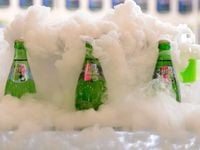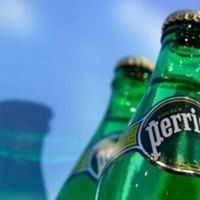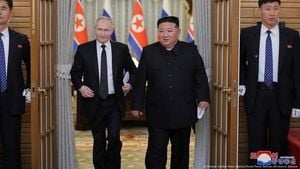Nestlé Waters is facing significant regulatory pressure in France, as the Gard prefecture has ordered the company to remove its controversial microfiltration system from the Perrier mineral water spring in Vergèze within the next two months. This decision comes amid ongoing scrutiny regarding the use of banned filtration methods that have raised health concerns.
On May 7, 2025, the prefecture issued a formal notice mandating the removal of the microfiltration system, which has been deemed non-compliant with regulations governing natural mineral waters. The prefecture also indicated that it would continue to review Nestlé's application for the renewal of its authorization to operate the Vergèze boreholes, with a decision expected by August 7, 2025.
The situation escalated after high-ranking Nestlé representatives were summoned to explain their practices before a French Senate investigative committee in March 2025. During these hearings, Nestlé’s use of banned filtration systems, which included ultraviolet and activated carbon treatments, came under fire. The company had previously received a derogation from the government in early 2023 to continue using these non-compliant filters, despite warnings from health authorities about potential contamination risks.
In light of the recent developments, the prefect of Gard, Jérôme Bonet, personally delivered the order to Muriel Liénau, the director of Nestlé Waters. The prefect emphasized the urgency of compliance, stating that the measures must be implemented promptly to ensure the safety of the water produced.
Moreover, the prefecture of Vosges has also issued a similar order, requiring Nestlé to remove banned filters from its Vittel plant. This dual action reflects a growing concern over the safety of bottled water and the integrity of the filtration processes employed by Nestlé.
Hydrogeologists, called in by the Gard prefecture, have already issued a negative health opinion regarding the production of mineral water at the Perrier site. This negative assessment is compounded by reports of bacterial contamination found in hundreds of thousands of bottles produced at the Vergèze plant, further amplifying the urgency for Nestlé to address these issues.
According to a report obtained by Franceinfo, the prefectural decree dated April 15, 2025, explicitly orders Nestlé to remove the controversial filters from its facilities and requires the company to submit an action plan detailing how it intends to comply with the regulations. The plan must include measures for enhanced monitoring of water quality, particularly in light of the contamination issues that have plagued the production process.
In response to the prefectures' orders, Nestlé has stated its commitment to comply with the requirements. The company is actively seeking technical solutions that would allow it to continue using the Vergèze source for Perrier while ensuring compliance with health regulations. Liénau remarked, "We will do our utmost to comply with the authorities’ requests, and hope to find solutions tailored to the specific characteristics of each of our sites."
Despite these assurances, concerns persist among health officials and consumer advocacy groups. Foodwatch, a consumer organization, welcomed the prefectures' decisions as a positive step but emphasized the need for thorough investigations into Nestlé’s practices. The organization hopes that the judicial inquiries initiated alongside these administrative actions will bring transparency to the multinational's operations.
Senator Alexandre Ouizille, who has been vocal about the need for accountability in the bottled water industry, criticized the government's earlier decision to allow Nestlé to use banned treatments. He stated that the prefectures' recent actions confirm that illegal practices had replaced previous ones and pointed to a series of serious dysfunctions within the regulatory framework. The senator is awaiting the results of a parliamentary inquiry set to be released on May 19, 2025, which will delve deeper into the practices of bottled water producers.
As the deadline for compliance approaches, the future of Perrier and other Nestlé brands hangs in the balance. The prefecture's decision to halt production of natural mineral water at the Vergèze site is also under consideration, pending further evaluations from health authorities and environmental councils.
In summary, the pressure on Nestlé Waters from French authorities marks a critical juncture for the company, which has long been a dominant player in the bottled water market. With regulatory scrutiny intensifying and public health concerns at the forefront, the company must navigate a complex landscape of compliance and consumer trust.
As Nestlé works to address these challenges, the implications of its actions will resonate not only in France but across the global market for bottled water. The outcome of this situation could set important precedents for how bottled water is regulated and the standards that companies must adhere to in order to ensure public safety.





